Heart disease is a serious health concern, yet many believe it strikes without any prior warning. In reality, the body often sends out signals beforehand. Recognizing these early signs is crucial—not just for safeguarding your own well-being, but also for helping others.


If you notice any of the symptoms listed below, it's essential to consult a medical professional. Ignoring these warning signs could cost lives, so paying attention could make all the difference.
Fatigue
Fatigue refers to a state of physical exhaustion where the body lacks energy and craves rest. While it’s normal to feel tired after a demanding day, unexplained and persistent fatigue can be a red flag. If you find yourself worn out without any clear reason—especially to the point where daily activities become difficult—it could indicate reduced blood flow to the heart, a common warning sign of an impending heart issue.


This kind of fatigue may also lead to excessive sleep. If the tiredness continues over an extended period, it’s important to consult a doctor. While heart problems are a possible cause, fatigue can also be linked to other serious medical conditions.
Unconsciousness
Have you ever fainted or experienced sudden blackouts? Frequent episodes of unconsciousness can be a serious warning sign of heart problems. While fainting can result from things like intense physical activity, severe pain, or dehydration, it may also indicate an underlying heart condition.


Heart-related causes often stem from a sudden drop in blood pressure, which reduces the oxygen supply in the bloodstream. When the brain doesn’t receive enough oxygen-rich blood, it can lead to fainting. Many individuals with tachycardia or bradycardia report that their symptoms began with episodes of fainting. If you or someone you know experiences unexplained fainting, it’s important to consult a doctor as soon as possible.
Rapid Weight Gain
Have you noticed your body changing quickly or found that your favorite clothes no longer fit? This sudden shift might be more than just a dietary issue—it could be your heart signaling a problem. One potential symptom of heart disease is fluid retention, which can lead to bloating, swelling, and significant weight gain in a short period.


While certain treatments can help relieve these symptoms, it's essential to track your weight consistently and consult a doctor if you notice any unusual or rapid increases. Sudden weight gain is rarely harmless and can point to other serious health conditions as well. If your clothes feel tighter and the scale is rising without clear cause, don’t delay seeking medical advice.
Nausea And Loss Of Appetite
Symptoms like indigestion, nausea, and a reduced appetite can sometimes be linked to heart failure, often accompanied by bloating. While these signs are common and not always a cause for concern, they can also indicate underlying heart issues. If such symptoms appear suddenly and without a clear cause, it’s wise to see a doctor.


These signs are frequently mistaken for digestive troubles and therefore overlooked. Although they could be related to other conditions—such as pregnancy—it’s best to get a medical evaluation to rule out serious concerns. If a heart problem is suspected, a visit to a cardiologist is recommended.
Irregular Heartbeat
A fast or pounding heart is often harmless and may simply be a response to stress, excitement, or adrenaline. However, if your heart frequently skips beats or feels like it's fluttering without clear reason, it’s time to consult a doctor.


These irregular rhythms can signal an arrhythmia—a condition where the heart doesn’t beat properly. Left untreated, arrhythmias can disrupt blood flow and raise the risk of stroke. That’s why it’s essential to have any persistent irregular heartbeat evaluated by a medical professional, who can determine the cause and recommend the right treatment.
A Persistent Cough
Have you had a lingering cough that doesn't seem to go away and lacks a clear cause? This could be more than just a respiratory issue—it might be a sign of heart disease. When the heart struggles to pump blood efficiently, fluid can build up in the lungs, leading to a chronic cough. If the mucus is pink or white in color, it could point to heart-related complications.


This type of cough often worsens at night or when lying down. While it may also stem from other conditions like lung cancer or tuberculosis, it’s crucial to consult a doctor to determine the true cause and rule out serious heart issues.
Cold Sweat
Experiencing cold sweats without physical activity or heat exposure could be a warning sign from your heart. While sweating is the body’s natural way of regulating temperature, sudden and excessive cold sweating may occur when the heart struggles to push blood through narrowed arteries. This can signal a serious issue, especially if it appears alongside other symptoms.


If you notice this happening, it's crucial to seek medical attention right away. It's also important to remember that cold sweats can result from other conditions like infections, certain medications, neurological issues, cancer, or severe stress. Regardless of the cause, quick action is essential—don't delay getting checked out.
Dizziness
While occasional dizziness is common and usually harmless, experiencing it without an obvious cause should not be ignored. In many cases, dizziness results from dehydration, low blood sugar, or poor nutrition. However, unexplained dizziness can also be an early indicator of heart disease. It may signal that your heart isn't pumping enough blood to the brain, which could point to a more serious underlying issue.


Paying close attention to this symptom is crucial, as early detection may help prevent certain heart conditions from progressing. If dizziness occurs frequently or without a clear reason, it's best to consult a doctor promptly.
Sleep Disorders
While occasional sleep disturbances are common and often treatable, persistent insomnia or disrupted sleep could be linked to heart problems. If you find yourself lying awake for hours and also notice other symptoms—such as chest pain, shortness of breath, or a racing heart—it might be a sign of an underlying cardiac issue.


Heart-related sleep disturbances can appear in various forms, often triggered by discomfort or difficulty breathing during the night. Before trying any remedies, it’s important to consult a doctor to rule out a heart condition as the root cause. Early diagnosis can be key to preventing more serious health problems.
Inflammation Of The Gums
Do you experience pain or bleeding when brushing your teeth? While it may seem like a minor issue, it shouldn't be overlooked—it could be linked to your heart health. Swollen or bleeding gums may be a warning sign of heart disease. Even mild gum inflammation or an irritated palate might indicate bacteria entering the bloodstream, which can contribute to clot formation.


Research has long shown a connection between oral health and cardiovascular health. So if you care about maintaining a healthy heart, taking good care of your teeth and gums is equally important. Don’t hesitate to consult a dentist or doctor if these symptoms persist.
Snoring
Snoring might be a nuisance—especially for your sleep partner—but it can also be a red flag for heart-related issues. While not all snoring is dangerous, unusual or loud snoring, especially when paired with pauses in breathing, could point to sleep apnea. This condition disrupts normal breathing during sleep and has been closely linked to heart disease.


If you or someone sleeping nearby notices strange breathing patterns or moments where your heartbeat seems to stop briefly, it’s important to take it seriously. Sleep apnea is a common condition and can be treated, but it’s crucial to speak with a doctor to identify the cause and explore the right treatment options.
Pain In The Upper Body And Arms
Do you feel vague or unexplained pain in your arms or chest? This could be a serious warning sign of heart trouble and should not be ignored. In many cases, a heart attack begins with discomfort in the upper body that can spread to the shoulders, neck, or jaw. However, the pain doesn't always follow a predictable pattern—it might start in either arm, the back, or even the mouth.


Because heart-related pain can appear in many forms and locations, any unexplained upper body pain should be taken seriously. If you notice these symptoms, it’s critical to seek medical attention right away.
Shortness Of Breath
If you find yourself struggling to breathe even after light physical effort, it’s a symptom you shouldn’t ignore. Feeling winded or weak during everyday activities may signal an overworked cardiovascular system.


When the heart isn’t pumping efficiently, your lungs may not receive enough oxygen, leading to shortness of breath. This can be a clear indicator of heart disease. If you regularly experience this kind of breathlessness, it’s important to consult a doctor to determine the underlying cause and get appropriate treatment.
Chest Pain
Chest pain is a symptom that should never be ignored. It can be a sign of a serious heart condition and requires immediate medical attention, especially if it comes on suddenly and with intensity. Often, it’s accompanied by shortness of breath or a feeling of pressure, tightness, or burning—usually in the center or right side of the chest.


During a heart attack, these symptoms can strike without warning and last for several minutes. This happens when blood flow to the heart is blocked, creating a life-threatening emergency. If you or someone nearby experiences these signs, call emergency services right away.
Butt Or Thigh Cramps When Walking
Cramps in the thighs, calves, or buttocks during walking are often blamed on magnesium deficiency, but they can sometimes signal something more serious—such as heart-related issues. According to the University of Pittsburgh Medical Center (UPMC), these symptoms can be a sign of aortoiliac occlusive disease, a condition caused by blockages in the arteries that restrict blood flow to the lower body.


This reduced circulation can lead to pain or cramping during physical activity and should not be ignored. Prompt medical evaluation and treatment are essential to prevent further complications.
Hairless Legs
While having little or no hair on your legs might seem like a convenience, it can sometimes signal an underlying circulatory issue. Poor hair growth—or sudden hair loss on the legs—may indicate peripheral artery disease (PAD), where plaque buildup in the arteries reduces blood flow to the limbs.


This lack of circulation can cause the skin to become cool, smooth, and shiny. According to McLeod Health in South Carolina, these signs are worth paying attention to, as they can point to serious vascular problems. If you notice these changes, it’s important to consult a healthcare provider for evaluation.
Colorful Mucus When Coughing
If you’re coughing up mucus that’s pink, reddish, or bloody, it may be more than just a respiratory issue—it could signal a buildup of fluid in the lungs. According to the American Heart Association (AHA), this type of symptom may indicate heart disease, particularly if it's persistent.


This occurs when the heart struggles to pump efficiently, causing fluid to accumulate in the lungs and lead to a distinctive cough. If you experience this, it’s important to see your doctor promptly for a thorough evaluation of both your lungs and heart.
Very Frequent Nocturnal Awakenings
If you find yourself waking up often during the night to urinate—even when you haven’t had anything to drink for hours before bed—it could be more than just a minor inconvenience. According to the Mayo Clinic, frequent nighttime urination can be a sign of heart failure.


When the heart struggles to pump effectively, fluid that accumulates in the body during the day may shift when lying down, increasing pressure on the kidneys and triggering the need to urinate. This may also point to potential kidney involvement. It’s important to consult a doctor to determine the underlying cause and receive proper treatment.
Discomfort In The Chest
Any discomfort in the chest area should never be ignored. This sensation might feel like fullness, heartburn, or pain in the center of the chest and can last for several minutes. Sometimes the discomfort fades and then returns.


According to the American Heart Association (AHA), these signs could be warning of an impending heart attack. Don’t delay or try to wait it out—seek immediate medical help and call emergency services right away. Prompt action can save lives.
Erectile Dysfunction
Erectile dysfunction can have various causes, and one potential factor is heart disease. Achieving and maintaining an erection requires increased blood flow to the area, but if arteries are blocked or narrowed, this blood supply can be disrupted.


Because heart problems can underlie these symptoms, it’s important to discuss any erectile difficulties with your doctor to rule out or address cardiovascular issues.
Confusion And Mental Disorders
Issues with memory, concentration, confusion, and forgetfulness can sometimes signal heart failure. According to the American Heart Association (AHA), these symptoms may occur due to chemical imbalances in the blood, such as altered sodium levels.


While fatigue or poor nutrition might also cause similar problems, it’s important to consider the possibility of an underlying heart condition. If you experience these cognitive changes, be sure to consult your doctor for a thorough evaluation.
Sleep Apnea
Sleep apnea is a disorder characterized by brief pauses in breathing during sleep. The American Heart Association (AHA) warns that this condition can increase the risk of stroke, high blood pressure, heart failure, heart attacks, and irregular heart rhythms.


If you experience sleep apnea, it’s important to seek medical advice to manage the condition and reduce potential heart-related complications.
Panic Attacks
Panic attacks often mimic heart attacks because they share many symptoms, such as anxiety, chest tightness, sweating, rapid heartbeats, dizziness, and weakness (according to UPMC).


Given the similarity, it’s crucial to have these symptoms evaluated by a doctor to rule out any serious heart conditions and ensure proper treatment.
A Sudden Blow To The Chest
If you suddenly notice your heart beating irregularly or feel your heartbeat strongly, it could be a sign of atrial fibrillation.


The American Heart Association (AHA) warns that this condition raises the risk of stroke. It’s important to see a doctor promptly for a proper diagnosis and treatment.
Breathing Difficulties
Experiencing trouble breathing even while at rest may indicate heart disease. When the heart fails to pump blood efficiently, fluid can build up in the lungs, leading to respiratory difficulties.


Early detection is critical—seeing a doctor promptly can be life-saving.
Sudden Migraine
Migraines, whether gradual or sudden, are unpleasant for anyone. However, if a migraine strikes abruptly and with intense severity, it may be a warning sign.


According to the Mayo Clinic, a severe migraine accompanied by vomiting and dizziness could point to a blood clot in the heart or even a stroke. In such cases, it’s crucial to seek immediate medical attention.
Excruciating Back Pain
Back pain isn’t always caused by injury; it can sometimes be linked to heart problems. According to the Cleveland Clinic, intense chest pain that spreads to the upper or lower back may signal a heart attack.


It’s crucial to act quickly—seek medical attention immediately if you experience these symptoms.
Swelling Of The Legs
Have your feet or legs recently started swelling without any clear cause? This could be your heart sending a warning signal. Swelling in the legs often results from fluid buildup in the body (fluid retention), which may indicate heart issues.


Since the legs and feet are farthest from the heart, they tend to show swelling first. If the swelling worsens, it’s important to consult a doctor promptly to avoid complications. Keep in mind that other serious health conditions can also cause leg swelling, so proper medical evaluation is essential.
Time To Improve Your Diet
To reduce the risk of cardiovascular disease, adjusting and improving your diet is key. This doesn’t mean you have to eat only fruits and vegetables, as that can be too limited.


A well-rounded diet includes a variety of foods that supply essential nutrients and vitamins. Below is a list of foods recommended for supporting heart health and overall nutrition.
Chickpeas
These tiny legumes are packed with valuable nutrients and fiber. They contain potassium, which is crucial for heart muscle function, along with other essential vitamins.


Chickpeas have been shown to help lower cholesterol levels and decrease the risk of heart disease. They’re versatile and can be enjoyed in many forms, including as hummus.
Coffee
Good news for coffee lovers—your favorite brew can be beneficial for heart health. Studies suggest that moderate coffee consumption may help protect against heart attacks and even strokes.


However, as with most things, it’s best to enjoy coffee in moderation and ideally without added sugar.
Cranberries
These tart berries are not only tasty but also packed with health benefits. Rich in antioxidants and essential nutrients, cranberries can lower the risk of heart disease and help prevent urinary tract infections and inflammation.


They may also support gum health and reduce the risk of stomach ulcers and certain types of cancer. Just be mindful—many cranberry products are heavily sweetened, so opt for unsweetened varieties when possible.
Figs
Popular in Mediterranean cuisine, figs are not only delicious but also beneficial for heart health. Whether eaten on their own or as part of a savory dish, they offer a rich source of calcium and dietary fiber.


These nutrients support cardiovascular function and may help reduce the risk of heart disease.
Linseed (Flaxseeds)
If you’re not a fan of fish or nuts, linseed is a great alternative. These small seeds are rich in heart-friendly omega-3 fatty acids, which help support cardiovascular health and regulate blood pressure.
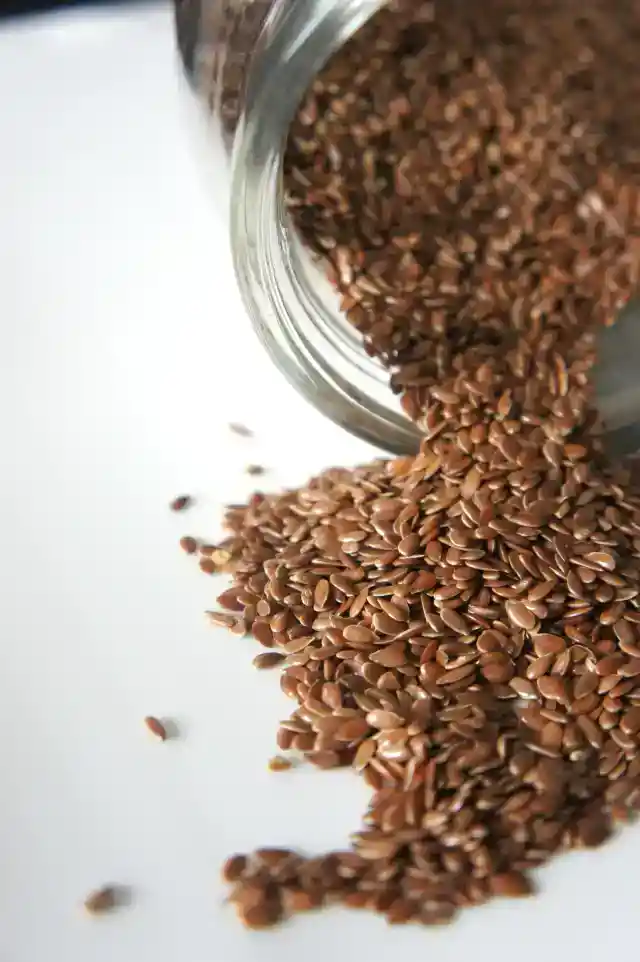
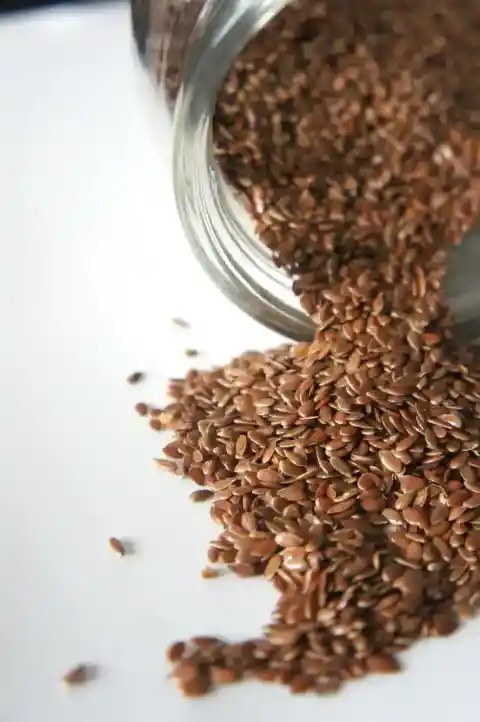
Flaxseeds are commonly added to muesli but can also be used in baking, such as in homemade bread, for a nutritious boost.
Red Chili Peppers
While not everyone enjoys spicy foods, red chili peppers contain capsaicin—a compound that helps widen blood vessels, improve circulation, and boost heart health.


Capsaicin can also help lower cholesterol levels. You don’t need to eat them in large amounts; even a small spicy kick in your meals now and then can be beneficial.
Ginger
Ginger is a versatile powerhouse with numerous health benefits. Consuming it regularly may help prevent high blood pressure and reduce the risk of heart disease. Known for its antibacterial properties, ginger is also a popular remedy for colds.


Additionally, it can soothe digestive issues and is packed with beneficial nutrients that support overall wellness.
Grapefruit
Grapefruit is rich in fiber and antioxidants, making it a great energy-boosting fruit—especially in the morning. It’s known to help manage high blood pressure and support heart health.


Just 100 grams of grapefruit can fulfill your daily vitamin C needs, and its fat-burning properties may also help ease the liver’s workload.
Green Tea
Green tea is packed with antioxidants that help protect the body from harmful free radicals. Its mild bitterness comes with powerful anti-inflammatory properties, making it a valuable ally in supporting heart health.


Additionally, the tannins found in green tea can calm the digestive system and even contribute to preventing tooth decay.
Kidney Beans
Kidney beans are packed with magnesium, protein, and folic acid. They’re low in fat and high in fiber, making them a heart-friendly food. By helping lower homocysteine levels, they can reduce the risk of stroke.
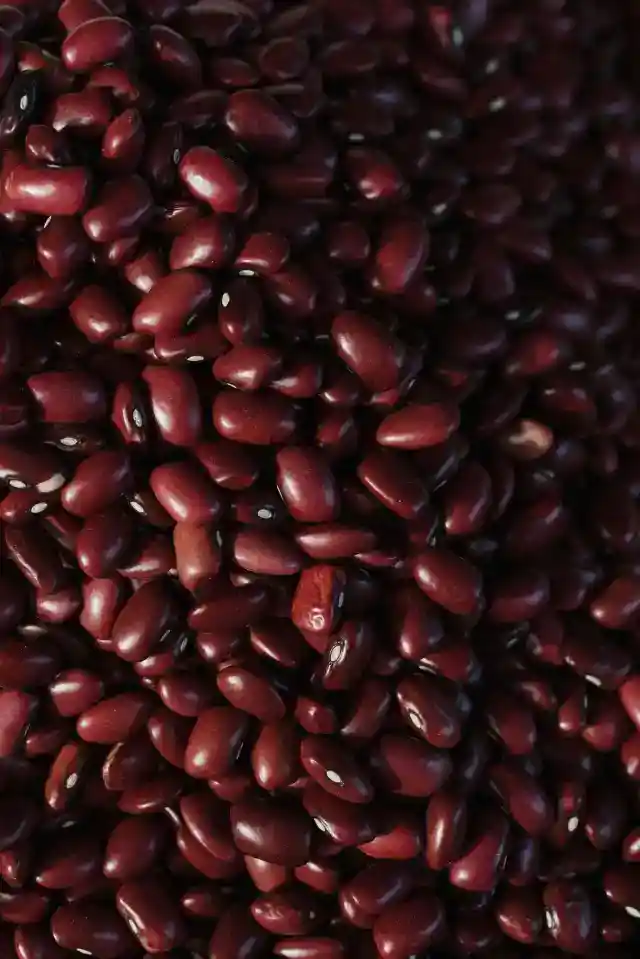
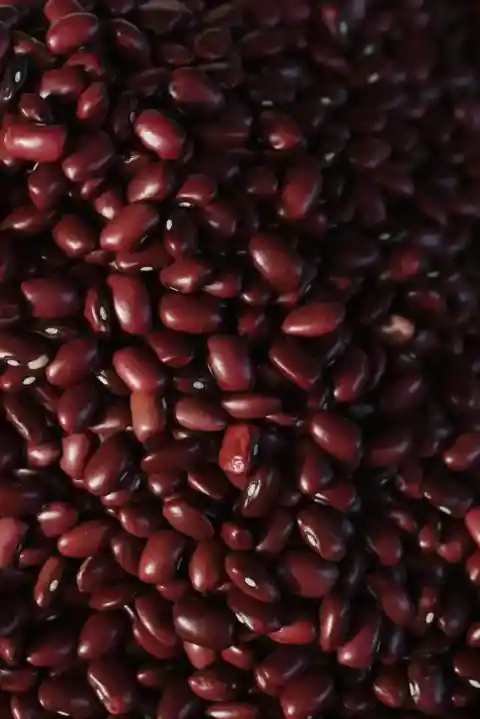
Regular consumption is also recommended to help prevent heart disease and even certain types of cancer. Whether in soups, stews, or salads, kidney beans are a versatile and nutritious choice.
Oranges
Oranges are a favorite for good reason—they’re versatile, tasty, and packed with health benefits. This citrus fruit helps absorb cholesterol from food and is rich in fiber, essential nutrients, and a high dose of vitamin C.


Whether enjoyed as juice, in desserts, or even in savory recipes, oranges are a delicious way to support heart health.
Kale
Kale, a member of the cruciferous vegetable family, is typically a winter green but is often available year-round. Packed with vital nutrients, kale supports heart health and may help prevent cardiovascular issues.


It’s rich in omega-3 fatty acids, antioxidants, and fiber, while being low in calories and fat—making it a great option for those aiming to lose weight as well.
Garlic
Garlic, a member of the leek family, is much more than just a mythical vampire repellent. It offers significant health benefits, including the ability to help reduce high blood pressure.


Packed with vitamins B1, B6, and C, along with minerals like calcium, copper, manganese, and selenium, garlic boosts the immune system and strengthens the body’s natural defenses.
Red Wine
Whether enjoyed with a meal or on its own, red wine is often linked to heart health benefits. It may help reduce the risk of cardiovascular disease and lower cholesterol levels.


The antioxidants found in red wine also promote better blood circulation and can help prevent the formation of blood clots.
Chocolate
Enjoying chocolate occasionally, especially dark chocolate with a high cocoa content, can be beneficial. Beyond boosting mood by releasing feel-good hormones, dark chocolate may help protect against heart disease and stroke.


Research from Harvard has demonstrated that regular intake of raw cocoa can improve blood pressure. When eaten in moderation, chocolate can support cardiovascular health and reduce the risk of serious heart conditions.
Lentils
Legumes like lentils offer impressive health benefits, especially for the heart.
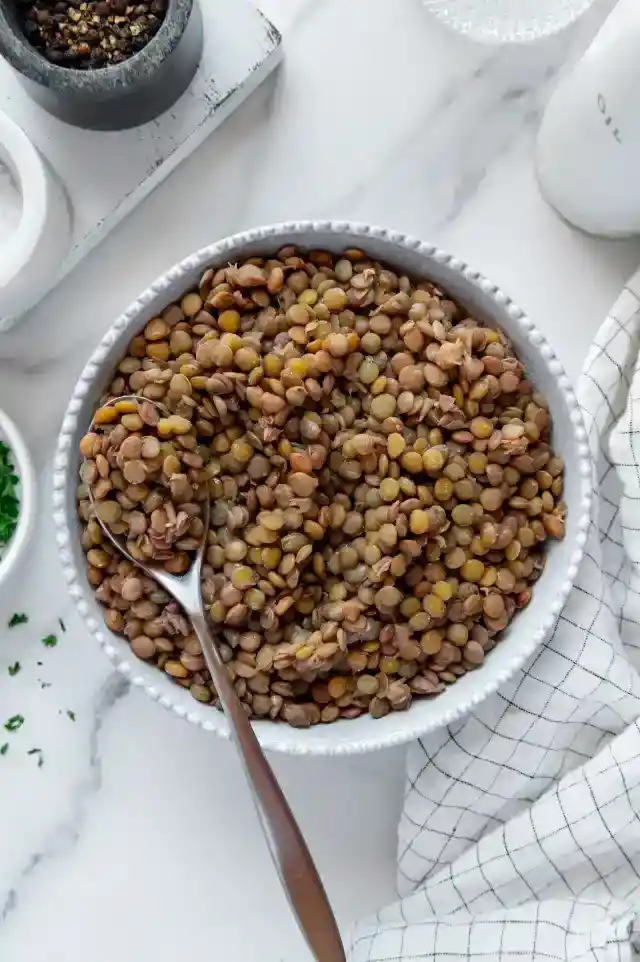

They are rich in potassium, protein, and magnesium, which help lower blood pressure and cholesterol while reducing the risk of heart disease and stroke. Lentils are delicious additions to stews, soups, or served as a simple side dish.
Almonds
Almonds are both delicious and versatile. Packed with healthy fats, they support the nervous system, help combat heart disease, and lower cholesterol levels.
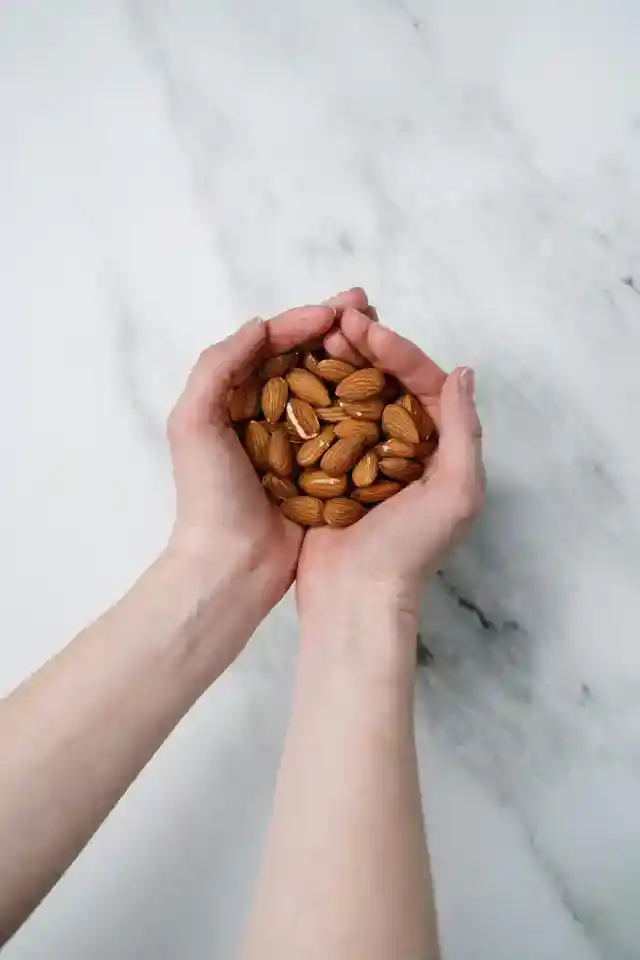

They also help control hunger by keeping you feeling full longer, making them an ideal snack between meals.
Pomegranate
Whether added to smoothies, salads, or shakes, pomegranate seeds are both tasty and highly nutritious. They are rich in antioxidants that help prevent artery calcification and combat harmful free radicals.


Pomegranates support heart health and may reduce the risk of prostate cancer, diabetes, stroke, and Alzheimer’s disease. Additionally, they benefit skin and dental health, making them a true beauty booster.
Blueberries
Packed with antioxidants and essential nutrients, blueberries are especially beneficial for those managing high cholesterol or high blood pressure.


Consuming them about three times a week is recommended to help reduce the risk of heart disease and cancer.
Beet
Beets are often recommended for supporting heart health and may help prevent cancer. This root vegetable is rich in vitamins like A, C, B, and folic acid.


A practical tip: wear gloves while handling beets, as they can easily stain your hands red.
Salmon
Salmon is a highly favored delicacy packed with omega-3 fatty acids and other essential nutrients. It helps reduce the risk of heart disease and blood clots.


Health experts suggest consuming around 70 grams of salmon or other fatty fish weekly for optimal benefits.
Turmeric
Turmeric is often considered a natural remedy, known for easing joint pain, reducing bloating, and combating flatulence.


It also helps lower the risk of heart disease thanks to its strong anti-inflammatory properties. Turmeric pairs well with meat dishes and can be a flavorful addition to smoothies or shakes.
Chia Seeds
Chia seeds gained popularity a few years ago as an ingredient in shakes and smoothies, but their health benefits have been recognized for much longer. They are an excellent source of antioxidants, protein, and essential nutrients.
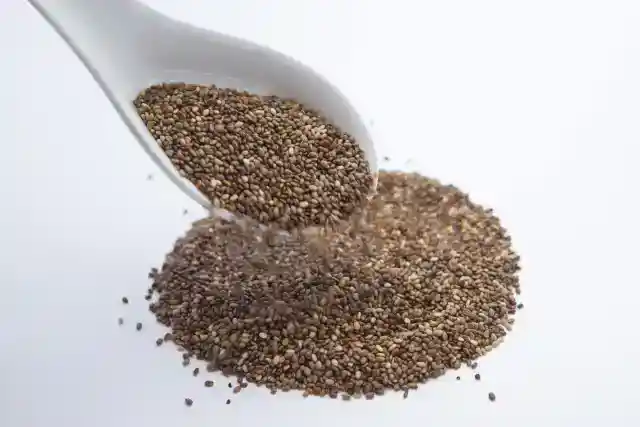
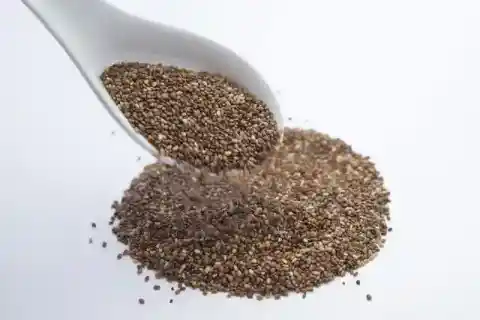
Rich in omega-3 fatty acids, chia seeds help reduce cholesterol levels. Additionally, they absorb water and expand in the stomach, keeping you full for longer and making them a great aid for weight loss.
Apples
There’s a well-known saying: “An apple a day keeps the doctor away,” and it holds some truth. Apples are packed with minerals, antioxidants, and vitamins that help lower blood pressure and reduce the risk of heart disease.


With so many varieties and colors available, there’s an apple to please every taste.
Avocados
Avocados have gained great popularity and, botanically speaking, they are actually berries. They’re delicious and packed with healthy fats that help improve cholesterol levels and offer protection against serious diseases.


Additionally, avocados support weight loss and are very beneficial for the health of your skin, hair, and eyes.
Eggplants
Eggplants, part of the nightshade family and native to Asia, are rich in antioxidants, minerals, and flavonoids that help protect against cancer.


These purple vegetables also lower cholesterol and reduce the risk of heart disease. Versatile in cooking, eggplants are especially popular in Mediterranean cuisine.
Broccoli
Broccoli, a close relative of cauliflower and a member of the cruciferous family, acts as a natural diuretic, helping to boost kidney function. It is packed with more vitamin C than many other vegetables and cabbages.
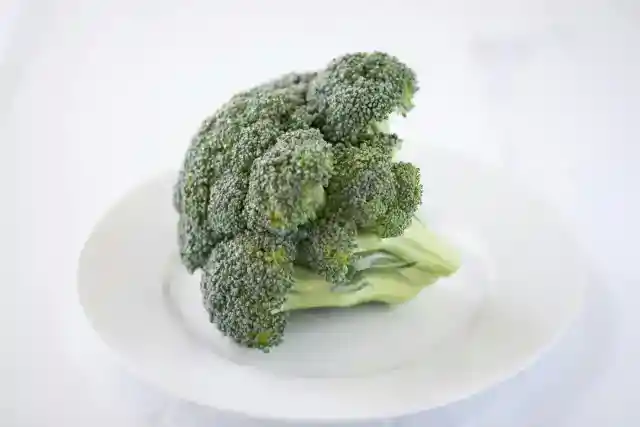

Those dealing with cardiovascular issues or high cholesterol are especially encouraged to include broccoli regularly in their diet.
Carrots
Carrots are loaded with beta-carotene, which plays a key role in maintaining healthy eyes. Naturally sweet due to their sugar content, they help fight free radicals and support heart health as well as bone health.


To maximize their benefits, carrots are best enjoyed with healthy fats like dips, yogurt, or olive oil, which help the body absorb their nutrients more effectively.
Chicken
Chicken is extremely versatile and can be included in a wide variety of dishes to make healthy meals.


Its low fat and high protein content make it especially popular among athletes. While some consider chicken a healthier option compared to red meat, opinions on this vary.
Kiwi
Kiwi is a unique fruit known for its fuzzy skin. Originally from East Asia, kiwis come not only in the familiar green variety but also in a yellow-fleshed type, which tends to be more fragrant.


Rich in antioxidants, kiwis help protect cells from free radicals and also offer anti-inflammatory benefits.
Mackerel
For a healthy alternative to tuna or salmon, mackerel is a great option.


This flavorful fish pairs well with salads and other dishes and is rich in heart-healthy omega-3 fatty acids, which can help lower the risk of cancer. Mackerel is also a top source of vitamin B12, supporting a strong immune system.
Cashew Nuts
Cashews are not only delicious but also packed with health benefits. They contain heart-healthy fats that help reduce cholesterol levels.
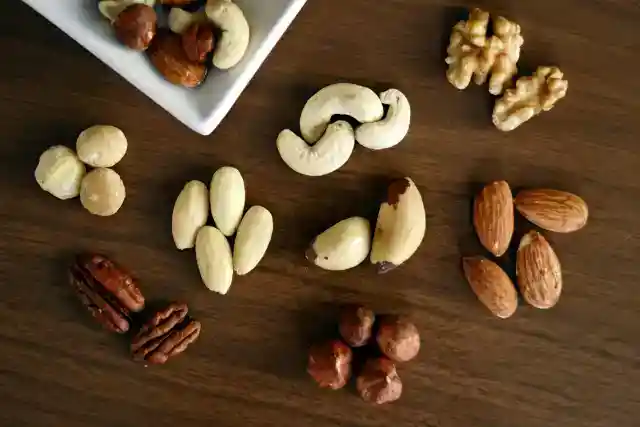

Rich in antioxidants, cashews also protect cells from damage caused by free radicals. Additionally, they have mood-lifting and calming properties, and may even support better sleep and relaxation.
Oatmeal
Oatmeal is a breakfast staple and especially popular in the form of porridge. It’s packed with essential nutrients and minerals, and is an excellent source of fiber.


With its low glycaemic index, oatmeal helps regulate blood sugar levels gradually, making it a great choice for those managing diabetes or aiming to lose weight.
Beans
Beans are often underrated, yet they are nutritional powerhouses. These legumes are rich in protein and fiber while being low in fat, making them ideal for a balanced diet.


They promote satiety, support heart health, and contain beneficial phytochemicals that may help prevent cardiovascular disease.
Pears
Pears are not only tasty but also incredibly nutritious. Rich in fiber and antioxidants, they support heart health by helping to regulate blood pressure and lower cholesterol levels.


Whether added to a fruit salad or enjoyed as compote, incorporating pears into your diet can be especially beneficial for those managing or aiming to prevent cardiovascular issues.
Asparagus
Asparagus is both a flavorful and health-boosting vegetable. Known for its natural diuretic properties, it helps flush out excess fluids and supports kidney function.


It’s also high in fiber, vitamins, and essential minerals. In addition, asparagus aids in regulating insulin levels and promotes a healthy digestive system, making it a valuable addition to a balanced diet.
Quinoa
Quinoa has become a staple in health-conscious diets and originates from the Andes region. This nutrient-rich grain is incredibly versatile, commonly used in salads or as a side dish.


Packed with essential minerals, fiber, and antioxidants, quinoa supports heart health, helps regulate blood sugar and cholesterol levels, and is ideal for those mindful of their weight.
Spinach
Spinach has long been known for its health benefits—Popeye wasn’t entirely wrong. These leafy greens are an excellent source of vitamin K, which supports bone strength, and they’re also rich in potassium, fiber, and folic acid.


While many believe spinach is packed with iron, that’s actually due to a historical decimal point error. In reality, spinach contains around 3.5 mg of iron—still beneficial, just not as much as once thought.
Strawberries
Strawberries are not only a summertime favorite but also a nutritional powerhouse. Packed with vitamin C and essential minerals, they help strengthen the immune system and support overall health.


Their low calorie content makes them a smart choice for those watching their weight, and they’re even believed to support fat burning—making them as functional as they are tasty.
Sweet Potatoes
Sweet potatoes have gained popularity for good reason. They’re rich in fiber, which promotes satiety and supports digestive health.


Just 100 grams of sweet potato can fulfill an adult’s daily vitamin E needs—an important antioxidant that protects cells and supports heart health. Their nutrient profile makes them an excellent choice for maintaining a healthy cardiovascular system.
Walnuts
Walnuts are a popular and nutritious snack, packed with heart-friendly omega-3 fatty acids.


These beneficial fats help lower cholesterol, regulate blood pressure, and support overall cardiovascular health. Additionally, walnuts are rich in melatonin and antioxidants, which contribute to cellular protection and better sleep quality.
Watermelon
Everyone loves watermelon, especially in summer. This refreshing fruit is made up of about 96% water, making it very low in calories.


It’s packed with essential nutrients like potassium, magnesium, and vitamins A, B6, and C, which help nourish and hydrate the body.
Bananas
Bananas are an excellent source of potassium, which is vital for the heart, muscles, and nervous system. This fruit provides a quick energy boost and helps prevent muscle cramps.


Bananas also help stabilize blood sugar levels and are beneficial for easing heartburn, morning sickness, and symptoms of PMS.
Olive Oil
Olive oil is not only delicious, especially in salads, but also incredibly healthy. It’s a staple in Mediterranean cuisine and is known as one of the “good” fats.


Olive oil helps lower harmful cholesterol, stabilizes blood sugar levels, and is also a fantastic natural remedy for skin care.
Soy
Soy is gaining popularity worldwide. Not only favored by vegetarians—since it’s used to make products like tofu and soy milk—soy serves as an excellent meat alternative.
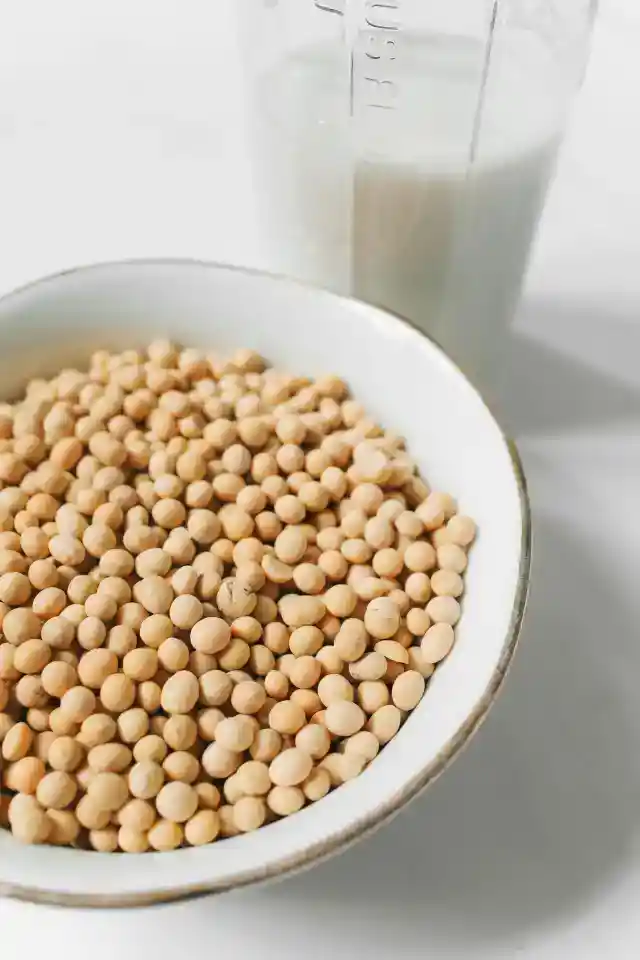
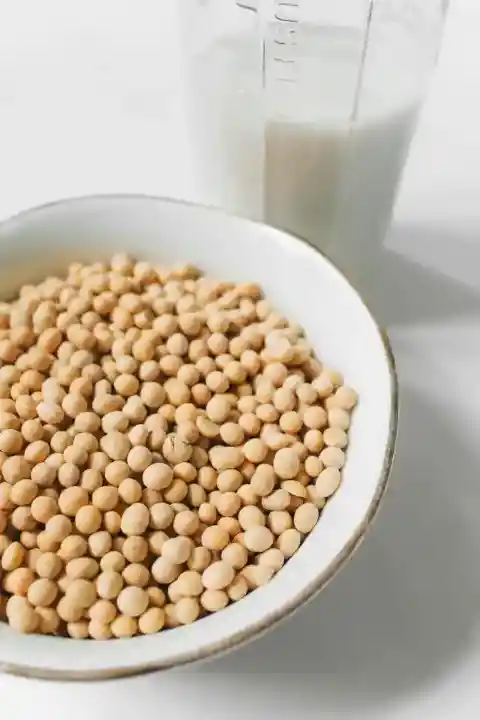
Packed with essential omega-3 fatty acids, protein, fiber, and vital nutrients, soy offers great benefits for the body.
Open Wounds On The Feet
Wounds or ulcers on the feet should never be ignored, as they could signal underlying heart issues. A condition known as aortoiliac occlusive disease—where the aorta becomes blocked—may reduce blood flow to the tissues.


This lack of circulation can lead to ischemia, resulting in tissue damage, open sores, or ulcers on the feet. In severe cases, untreated ischemia may even cause tissue death. Prompt medical evaluation is crucial to prevent complications. (Source: NYU Langone Health)
Pain In The Toes
Occasional toe pain after standing or wearing tight shoes is usually harmless. However, if you experience persistent toe pain, numbness, or a cold sensation in your legs without an obvious cause, it could be a warning sign of aortoiliac occlusive disease.


This condition restricts blood flow to the lower limbs and can become life-threatening if left untreated. It’s essential to consult a doctor to rule out serious vascular issues and receive proper care.